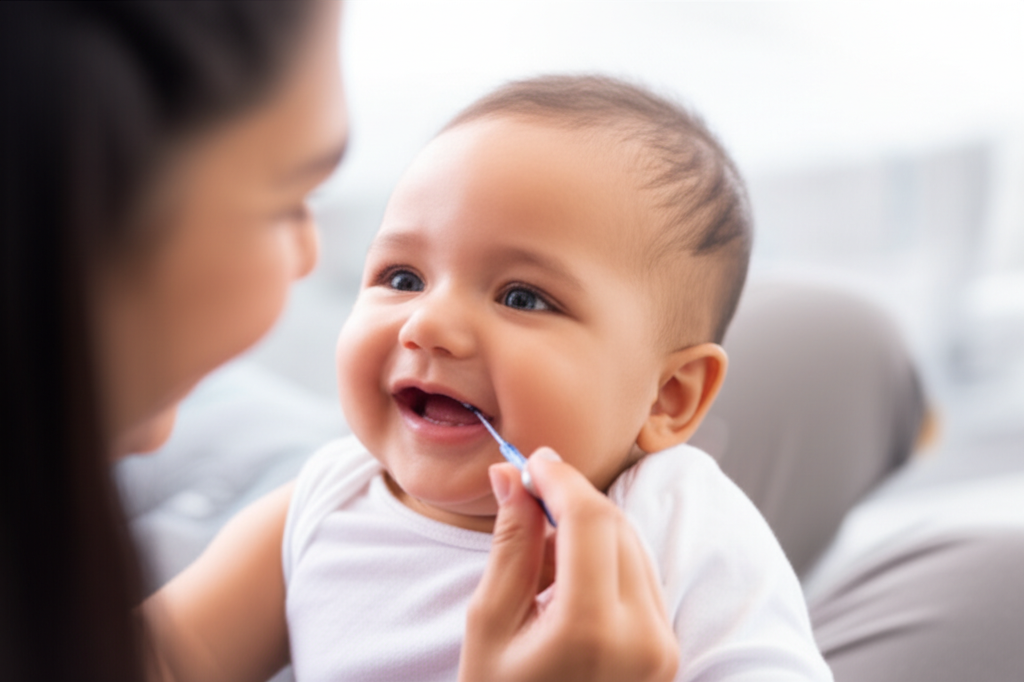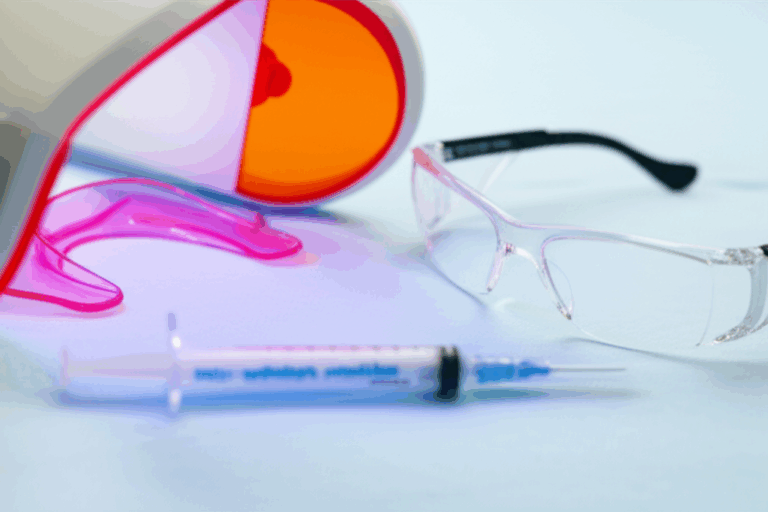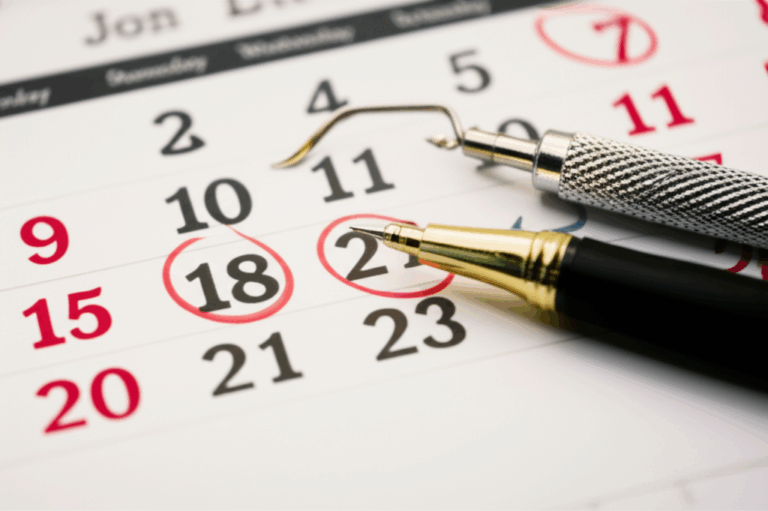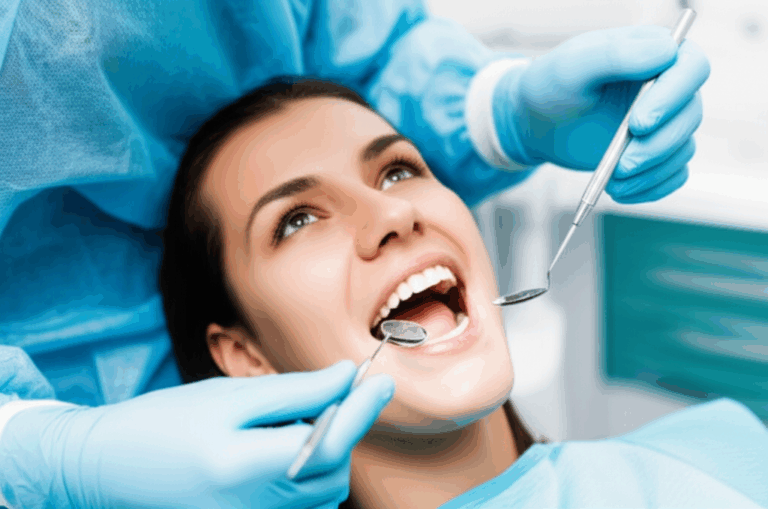
When to Take Your Baby to the Dentist: The Essential Parent Guide
Is your baby’s first tooth coming in? Maybe you haven’t seen a tooth yet, and you wonder, “When should I take my baby to the dentist?” If so, you’re not alone. Many parents worry about when and how to start looking after those small, new teeth—or even their baby’s toothless smile!
You want your child to grow up with a healthy, happy smile. But where do you begin, and how do you avoid easy mistakes? Don’t worry—I’ll show you what experts say and the easy steps you can take right now to care for your baby’s teeth. Let’s answer your questions, clear up common myths, and help you feel ready for that first dental visit.
In This Article
- The Right Age for Your Baby’s First Dental Visit
- Why Early Dental Visits Matter So Much
- What to Expect at Your Baby’s First Dentist Appointment
- How to Prepare Your Baby (And Yourself)
- Common Questions, Real Answers (FAQs)
- Fast Facts and Key Statistics
- Your Takeaway: Easy Steps for a Smile That Lasts
The Right Age for Your Baby’s First Dental Visit
“When Should I Take My Baby to the Dentist?”
Let’s start with the big question. Leading experts—including the American Academy of Pediatric Dentistry (AAPD) and American Dental Association (ADA)—say:
Take your baby to the dentist when their first tooth comes in, or by their first birthday, whichever comes first.
Yes, you read that right. If you see a tooth at five months, or you get to the first birthday with no teeth yet, it’s time for that first dental checkup. If your baby still doesn’t have any teeth by age one, go ahead and book the visit anyway. The dentist will check your baby’s mouth, answer your questions, and let you know what’s normal.
Why So Early? The Simple Reasons
It might seem early—your baby might not even have many teeth! But these early dental visits are not just about counting teeth—they’re about:
- Stopping big dental problems before they start
- Showing parents how to care for their child’s mouth
- Helping your child get comfortable with the dentist
Studies show kids who see a dentist by age one have fewer cavities, dental problems, and pain as they grow up. These early visits can save you worry, money, and sleepless nights later.
Why Early Dental Visits Matter So Much
Now let’s talk about the reasons these visits are important—it’s more than just checking a box.
Stopping Early Cavities: The “Hidden Problem”
Have you heard of Early Childhood Cavities (also called baby bottle tooth decay)? It’s more common than you think! The CDC says dental cavities in kids happen five times more than asthma and affect about 42% of kids between 2 and 11 years old.
What’s the worry? Cavities in baby teeth don’t always hurt at first, but they can suddenly get worse—leading to pain, trouble eating, or even infections. It’s a bit like a tiny leak that quickly gets bigger.
Dentists know how to spot these problems early and help stop them from getting worse. The sooner the visit, the better.
Helpful Tips for Parents: Your At-Home Guide
You might want to wait until there’s a problem, but early dental visits mean you can get advice before anything goes wrong. The dentist can show you:
- How to clean your baby’s mouth and teeth (it’s easier than you think!)
- When and how much toothpaste to use, and when to start using fluoride (it helps stop cavities)
- How bottles, nursing, pacifiers, or thumb-sucking can affect teeth
- Foods that help or harm new teeth
- How to help with teething pain
Think of your dentist as your coach, giving you a simple plan for home.
Watching Your Baby’s Mouth Grow
A dentist looks at more than just teeth. At these visits, they’ll:
- Keep track of when your child’s teeth come in
- Check for any issues with the mouth’s soft tissues that could make feeding or speaking hard
- Watch for any early signs that your child may need braces or other care later
It’s a lot like your baby’s doctor checkups—the sooner someone spots a small issue, the easier it is to fix.
Making the Dentist a Familiar Place
Picking a dentist early isn’t just about appointments. You’re giving your child a “dental home”—a place that feels safe and known.
Why is this good? Kids trust what’s familiar. They get to know the office, the staff, and how things work. This comfort helps stop dental fear and makes going to the dentist simple, and maybe even fun right from the start.
What to Expect at Your Baby’s First Dentist Appointment
You’ve set up the appointment—what now? Will it be scary? Will your baby cry—or can this be a good experience?
Here’s what usually happens.
A Gentle, Easy Exam
Most first dental visits are about making your child feel safe, teaching you simple steps, and building your confidence. Usually:
Cleaning and Fluoride (If Needed)
If your baby has a few teeth already, the dentist may:
- Gently clean them with a soft brush or cloth
- Put on fluoride varnish, which helps stop new cavities
It doesn’t hurt, and it usually takes just a few minutes.
The Visit is for You Too!
The dentist will spend most of the time talking to you. Expect to talk about:
- How to clean your child’s mouth at home (they’ll show you how)
- When (and how) to start flossing (sometimes even baby teeth need it!)
- When to use toothpaste, and what kind to use
- Food, bottle, and feeding tips to help keep teeth healthy
- Ideas for teething (safe toys, chilled rings, etc.)
- How often your child should come for checkups
Ask any questions—nothing is too small!
Don’t Worry If Your Baby Cries
If your baby is unhappy, moves around, or even cries, that’s okay. Dental teams who work with babies are used to this. Their job is to keep things calm and quick, so your child starts to learn that the dentist’s office isn’t scary.
How to Prepare Your Baby (And Yourself) for the First Dental Visit
Wondering how to make it go smoother? Here are a few simple tips!
Pick a Good Time
- Book the visit after your baby has rested and eaten, when your baby is usually in a good mood
- Try not to book during nap time or when your baby is likely to be tired
Bring Comfort Items
- Bring your child’s favorite toy, small blanket, or pacifier
- Have a snack or bottle ready for after the visit
Stay Positive
- Use happy words—say things like “The dentist wants to see your strong teeth!” instead of “It might hurt” or “Don’t be scared.”
- Read a simple book or watch a short show about the dentist
Be Ready: Make a List
Be confident for your baby! Write down:
- Any questions about brushing, teething, eating, or thumb-sucking
- Any small things you’ve noticed in your child’s mouth (like a new spot)
- Your insurance info and any medicines your baby takes
The dentist expects questions from parents—so ask away!
Common Questions, Real Answers (FAQs)
Now let’s answer some of the top questions (even the ones you might feel shy about).
“My Baby Only Has One Tooth—Isn’t That Too Soon?”
Not at all! One tooth is enough for a full checkup. Starting early means you can learn how to prevent problems before they start.
“What If My Baby Cries or Won’t Let Anyone Look?”
That’s okay. Dental offices that take care of infants know that some crying happens. The team’s job is to make it as easy as possible. Over time, your child will get used to it.
“Should I Go to a Pediatric Dentist or Any Dentist?”
A pediatric dentist is specially trained for little kids and babies—they understand how kids grow and how to make things easy for them. But many regular (family) dentists are a good choice too, if they often see young kids and have a child-friendly office. Just ask them!
“Will Insurance Cover My Baby’s Visit?”
Most family dental plans and many public programs like Medicaid and CHIP pay for baby dental visits. It’s always smart to call before you go, just to be sure. These visits are a great investment for your child’s health.
“What If There’s an Emergency?”
Sometimes babies get hurt, lose a tooth, or have swelling or bleeding. If this happens, call the dental office right away. Lots of offices can help in an emergency or tell you where to go for quick care.
“Do Baby Teeth Really Matter? They Fall Out Anyway!”
It’s a common thought, but baby teeth are very important for eating, talking, smiling, and saving space for adult teeth. Problems in baby teeth can cause big pain and trouble eating or sleeping. They’re worth caring for!
Fast Facts and Key Statistics
Let’s see how much early dental care matters, with clear facts:
- The Rule: AAPD: “First tooth, first birthday, or within 6 months of getting their first tooth.”
- Prevalence: 42% of kids ages 2–11 have cavities in baby teeth (CDC).
- Benefits: Kids who see the dentist by age 1 need fewer expensive treatments when older (Journal of Public Health Dentistry).
- Prevention: Dentists can use fluoride on baby teeth to lower cavity risk by about a third (Cochrane Review).
- Barriers: Only 1 in 5 kids with Medicaid see a dentist by age 1 (Pew Charitable Trusts).
- Impact: Dental problems cause 51 million school hours missed each year (CDC).
- Knowledge: Many parents don’t know baby teeth can get cavities or that early care is important—so seeing a dentist early really helps.
Your Takeaway: Easy Steps for a Smile That Lasts
Still wondering what to do? Here’s a simple checklist:
Key Points to Remember
- Set up your child’s first dental visit when you see a tooth, or by their first birthday—whichever comes first.
- Even with just one tooth (or none), the checkup is still helpful.
- Early dental visits help stop cavities, infections, and pain and let you learn how to care for your child’s teeth.
- Ask your dentist anything—there are no silly questions.
- Start cleaning your baby’s mouth every day, even before teeth, by wiping the gums.
Steps for Parents
Bonus: Real-Life Tips & Resources
- For older children, starting good dental habits now can help avoid treatments like crowns, bridges, or mouth guards later. If you’re interested in how dental labs help with advanced care, you can explore what a crown and bridge lab does or check out the latest in digital dental tools at a digital dental lab.
- Get clear advice and bust myths with trusted groups like the ADA, CDC, or AAPD—they have free guides for new parents.
- If your child has special needs, was born early, or you have other worries, ask the dental office for extra tips—they have helped many families like yours.
Final Thoughts: Invest in Your Child’s Health Today
Getting dental care early isn’t just another job on your checklist—it’s an important start for your child’s health, happiness, and bright smile. What you do now will help them for years, letting your child smile with confidence from toddler to grown-up.
Don’t just wait until there’s a problem. Make the first dental visit a happy event. You’re not alone—your child’s dentist is ready to help you with advice and expert care.
Got more questions? Ready for that first visit? Reach out to a pediatric dental professional today—and enjoy watching your baby’s bright smile grow.
Article reviewed by a licensed pediatric dentist.
For more helpful dental tips and friendly advice, explore our dentist resources.
Remember: One tiny tooth. One big step. A healthy smile starts now.








